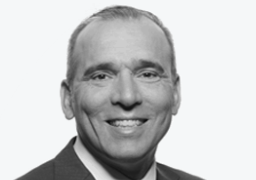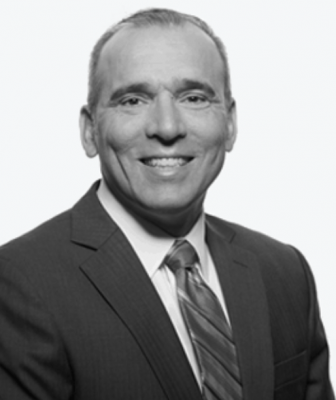
TOO LATE: WE CAN’T BE TOO LATE IN IMPROVING OUR MENTAL HEALTH SYSTEM IN THE WAKE OF COVID-19

A war analogy is being used to describe COVID-19 as the invisible enemy. Staying with that analogy, let’s consider General Douglas MacArthur’s remarks, where he preaches that the history of war can be summed up in two words: “Too Late.” “Too late in comprehending the purpose of the enemy, too late in preparedness, too late uniting forces, too late standing with one’s friends.” Upon re-reading this quote recently, I, of course, started thinking about America’s behavioral health response to COVID-19. Are we too late in our comprehending this invisible enemy’s impact on America’s mental health? A new Pulse Survey reveals 4 in 5 Americans believe the pandemic will have a negative impact on the mental health of Americans.
We cannot be too late in identifying and responding to the mental health consequences of COVID-19 on Americans, particularly first responders, health professionals, and their families. We don’t need to look further than 9/11 or a natural disaster to see the immediate and long-lasting impact of trauma and war have on the mental health of those involved. Repeated engagement with trauma and unsettling events takes a toll on everyone. Have you heard the testimonials of doctors, nurses, and first responders sharing their emotional videos for the world to see? Their pain and suffering are evident and will certainly worsen as time goes on without intervention. They need support now, but sadly we have learned that 80% of Americans worry that people who need mental health services won’t be able to access them. They helped us, who will help them?
We can’t be too late in the preparedness for COVID-19 and the surge of mental health cases expected as a result of trauma, depression, PTSD, addiction, financial impact, and family stress. Nine in ten Americans think it is more important than ever to have access to mental health services as a result of the pandemic. The COVID-19 pandemic is being called the most significant crisis to ever hit community mental health system and addiction treatment providers. Perhaps this is why the National Council for Behavioral Health and 40 other national organizations addressing mental illness and addiction, have joined together now, while we have the attention of the American people to ignite behavioral health systems change. Are we too late in our preparedness to combat this invisible enemy?
Sadly, our country’s collective efforts supporting mental health systems over the past five weeks – or I should say across the past five decades – has been disheartening. Too little attention has been given to the entire behavioral health infrastructure, which has, and will continue to crumble from the weight of Americans in times of need. The U.S. has been too late in advancing the behavioral health community for the people. Nearly 74% of Americans do not believe mental health services are accessible to the general population, and about half believe options are limited to get care. This is partly due to our nations’ Community Behavioral Health Systems (CBHS) having been underfunded, poorly integrated across health systems, and clearly not supported to innovate. Private non-profit philanthropic organizations, like ours, are doing their part, but cannot fight this battle alone. We must all work together, collaborate, to defeat this invisible enemy.
We must engage now and use COVID-19 as the catalyst for positive change. The responsibility lies with everyone, to include local, state, and federal leaders to bolster behavioral health systems and the private sector to join forces so these vital, lifesaving, systems thrive instead of just survive. The good news is government officials have already taken temporary steps to change federal and state guidelines so that more practitioners can use telehealth to enable access to care during the COVID-19 pandemic. The field has been asking for these guidelines to change for many years. To ensure these systems are sustained and operated in a manner that is equal to that of other areas of health, we need to act now to:
- Support our Community Behavioral Health Systems with access to stimulus funding for recovery and adequate sustainment funding to ensure Americans have access to quality care now and into the future;
- Establish true parity so that all mental health services, public and private, are reimbursed at the same levels as physical health services;
- And, update antiquated telehealth regulations that prevent providers from seeing patients across state lines.
We look forward to the issuance of permanent guidance, making it clear that the full range of all behavioral health providers can offer reimbursed telehealth services to their clients – with uniformity across state lines. We need behavioral health care to be fully accessible. We need to use this crisis as an opportunity to do better. We can’t be too late for the next national crisis.
Dr. Anthony M. Hassan is CEO and President of Cohen Veterans Network, a not for profit philanthropic organization that currently operates 15 mental health clinics for veterans and military families.
Statistics quoted in this article relate to findings from the America’s Mental Health COVID-19 Pulse Survey conducted by CVN March 30-April 1, 2020.
